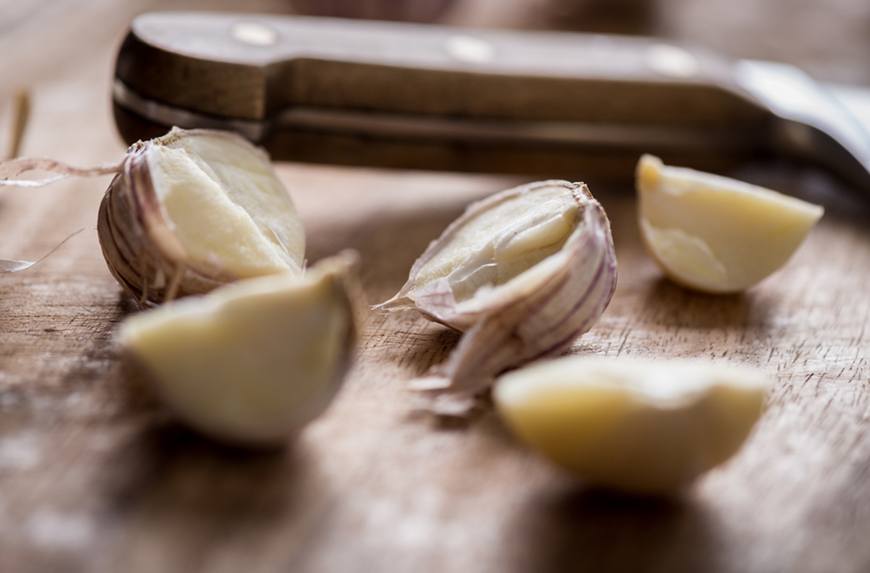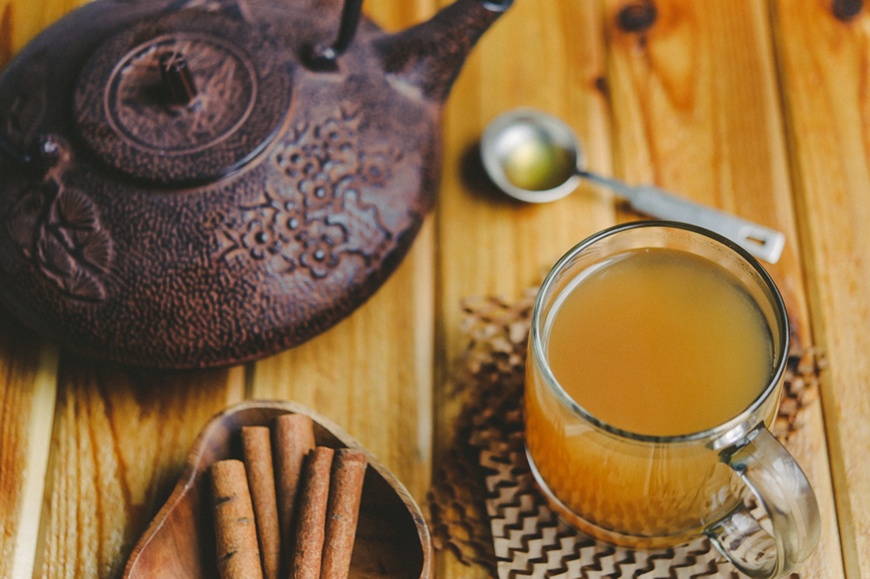To Fight a Cold, Which Old Wives’ Tales Are Legit?
It all starts out innocently enough: you notice a sniffle here, a sneeze there, maybe a tickle in the back of your throat. Fast-forward 24 hours and suddenly you're in the grips of a *majorly* inconvenient cold. "How did I get here?" you might think. But forget that—what you need to focus on now is how to get better.
Nothing can actually cure the viral infection that claims winter weekends and work-week sick days—no, not even zinc. *Sigh.* But it's a real bummer to skip all your appointments and sweat sessions, especially when you're on your third day of congestion, body aches, and restless sleep.(PSA: Here's why you really should, though.) And this is exactly when many consider the old wives' tales about how to not only alleviate cold symptoms, but hopefully zap them out of existence.
I tapped Patricia Salber, MD, for her input on which colloquial cold remedies might actually work. As the founder of a blog dedicated to evidence-based health-care intel, The Doctor Weighs In, Dr. Salber had *plenty* to say about which tales were based in medical fact and which were irrefutably false.
Keep reading for the scoop on which cold-remedying old wives' tales you can *reliably* turn to.
"Hefty doses of garlic and onions can stave off a cold"
The verdict? Maybe.
According to Dr. Salber, a 2014 Cochrane Review of medical literature found one viable research study that focused on garlic's cold-fighting abilities. The trial found that taking a garlic supplement once a day for 12 weeks did reduce the number of of self-reported colds (24 compared to 65 in a placebo group), but the study was too small for researchers to definitively conclude anything, she says. Plus, study participants reported side effects like odor and rashes. Yikes.

{{post.sponsorText}}
Given how limited in scope the garlic study was, it should come as no surprise that there aren't any similar research studies on onions and the common cold. "I did not find any studies that support the use of ingested onions to fight the common cold," Dr. Salber says, adding that onions and garlic do come from the same family of vegetables so there's a possibility an onion study could have similar findings.
"Sip a hot toddy for relief from symptoms"
The verdict? Again, maybe.
A hot toddy before bed sounds a lot nicer than a tablespoon of pungent, nighttime cold medicine. But sadly, "nice" does not correlate with effective—at least not all the time. So while there are no published studies on the impact of downing the piping hot whiskey-honey-lemon-water cocktail, researchers have established that some of the ingredients in a hot toddy can help you feel better.
Lemon and honey can loosen congestion and help prevent dehydration, and spices in the drink may stimulate saliva and help relieve a sore throat, Dr. Salber says. And, bonus: "Even if these don't really make much of a difference, by the time you finish the drink, you may not really care," she says.
But given that alcohol is a diuretic, you're better off nixing the whiskey and reaping the benefits of hot lemon water with honey and spices like ginger, nutmeg, cloves, and cinnamon, which can be added and are shown to be good for you.

"Starve a fever"
The verdict? False.
According to Dr. Salber, the evidence on this claim is conflicting. Fasting forces the body into a state of ketosis, or fat-burning, and it's well-documented in medical studies that the ketones produced from fasting help to reduce inflammation. But how does that relate to nixing a cold?
"This does not mean that starving a fever by fasting will do anything to help you recover from a cold more quickly," explains Dr. Salber. "Further, some researchers have suggested that elevated body temperature helps immune cells to function better. In the face of conflicting information, I suggest you skip the fasting."

"A bowl of chicken soup will help cure you"
The verdict? True!
Turns out the "old wives" were right about this one. Science actually says the warm, salty broth is hydrating, which is obviously a good thing when fighting a cold. And Dr. Salber says the book First You Boil a Chicken: Food Lover's Guide to the World's Chicken Soups referenced research that shows chicken soup decreases the ability of neutrophils (a type of white blood cell) from rushing to infected areas in the body, thus reducing inflammation.
But while you may be reaching for a quick fix today, just remember that eating well throughout the year is your best defense. (In addition to getting plenty of sleep, exercise, and love!)
Here's how to tell if you can DIY your cold remedy, or if you need to visit the doctor, stat. Plus, here's your cheat sheet to help you figure out which doctor appointments to schedule on the reg—and when to do it.
Loading More Posts...

